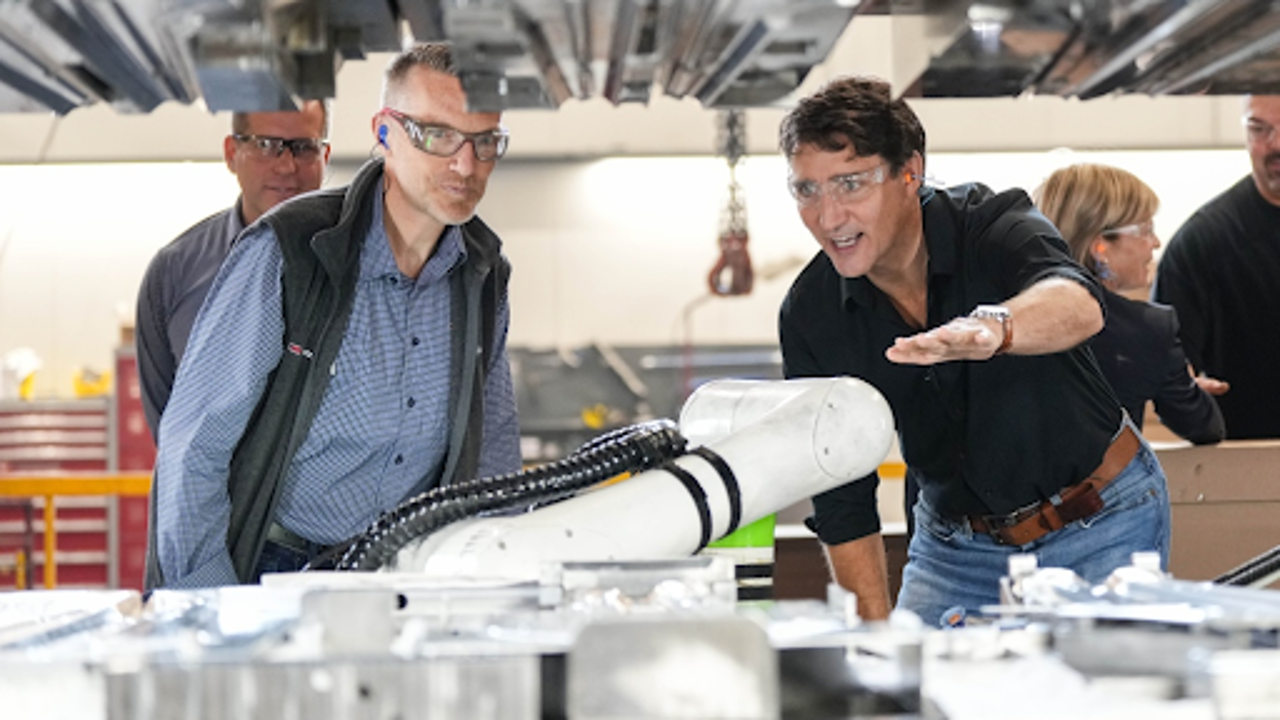
Prime Minister Justin Trudeau, right, visits Verbom, a sheet metal processing plant for the automotive and RV sectors in Sherbrooke, Quebec, on Thursday, August 22, 2024. ( The Canadian Press)
Canada is introducing new tariffs on electric vehicles (EVs) imported from China, aiming to prevent these vehicles from gaining a strong presence in the North American market. Prime Minister Justin Trudeau announced this move during a federal cabinet retreat in Halifax on Monday. Starting October 1, the import tax on Chinese-made EVs will rise from 6.1 percent to 106.1 percent.
In addition, tariffs on Chinese steel and aluminum products will increase to 25 percent on October 15, with a detailed list of affected items to be released on October 1.
Trudeau emphasized the need to protect Canada’s automotive sector from unfair competition. "We are working to make Canada's automotive industry a global leader in the future of vehicle manufacturing. However, China’s actions have given them an unfair advantage, affecting our critical industries and displacing Canadian workers," he said. "Therefore, we are taking steps to address this issue."
Currently, Chinese brands are not dominant in Canada’s EV market. However, imports from China have surged in the past year, especially after Tesla moved its Canadian production from the U.S. to its Shanghai facility. Chinese EV maker BYD, which stands for Build Your Dreams, has recently set up a Canadian corporate branch and plans to enter the Canadian market by next year.
In Europe, BYD has experienced rapid growth, and new tariffs on Chinese EVs are also being considered. If approved, these tariffs will be significantly lower than those being set by Canada and the U.S.
A senior official revealed that the Canadian government has been discussing with Tesla the possibility of sourcing Canadian-bound vehicles from Tesla’s other manufacturing plants rather than from China.
Earlier this year, U.S. President Joe Biden increased the tariff on Chinese-made EVs to 100 percent, citing unfair subsidies provided by Beijing. The U.S. Department of Commerce is also looking into national security risks associated with internet-connected vehicles from China and other countries.
In May, the U.S. raised tariffs on various Chinese products, including solar cells, computer chips, medical equipment, and lithium-ion batteries.
Canada must follow a consultation process to implement these tariffs, which was conducted in July for EVs and steel and aluminum. Trudeau indicated that the government is also considering additional tariffs on computer chips and solar cells to further protect Canadian jobs from unfair practices by China.















